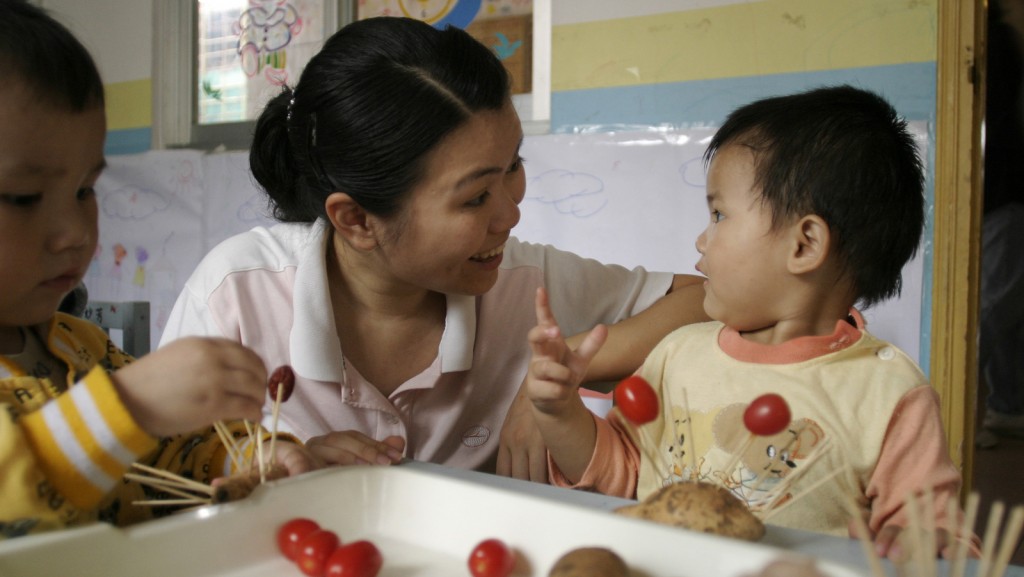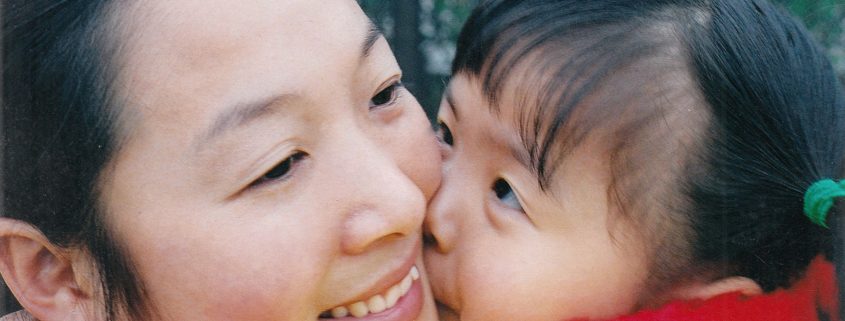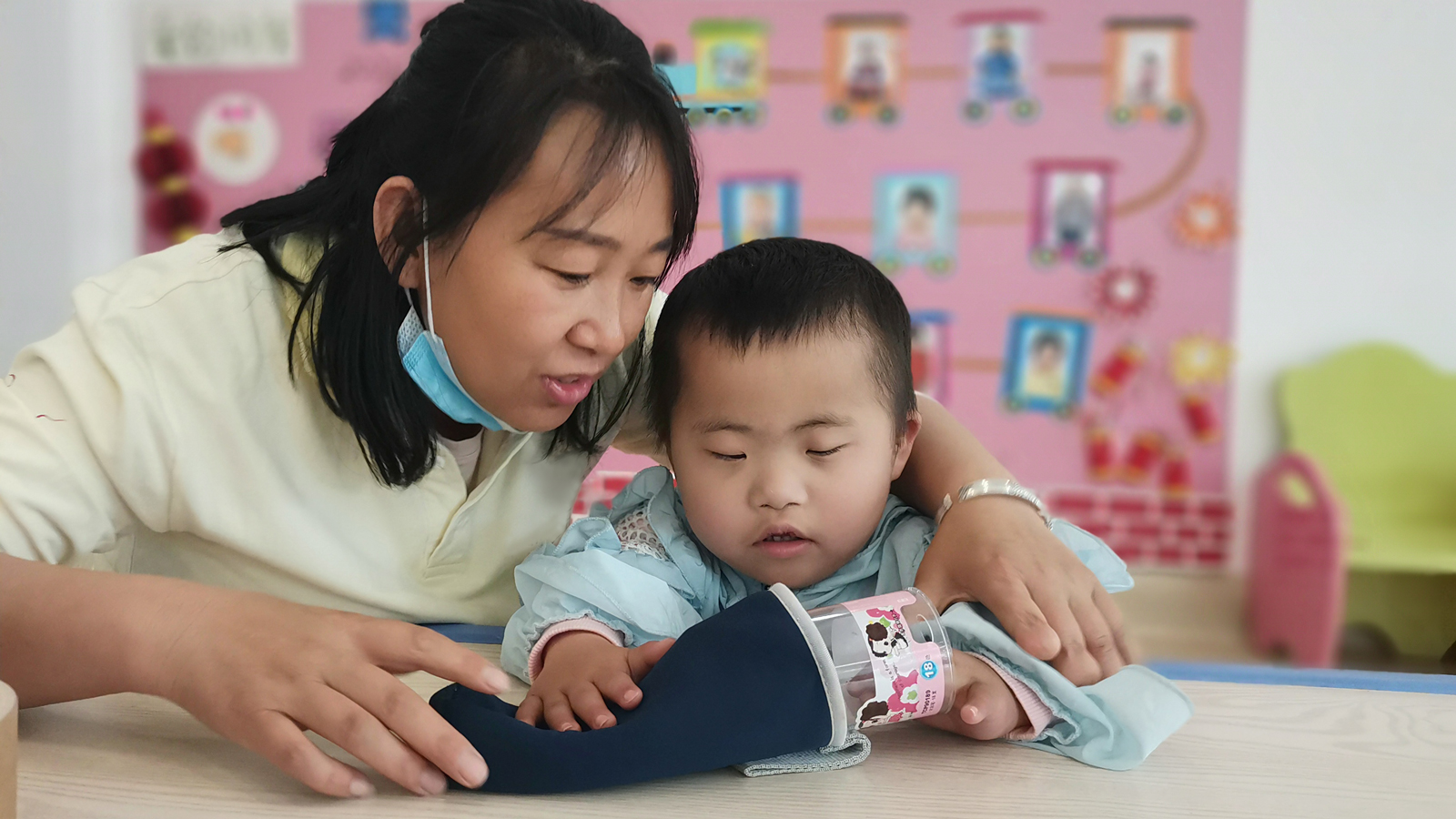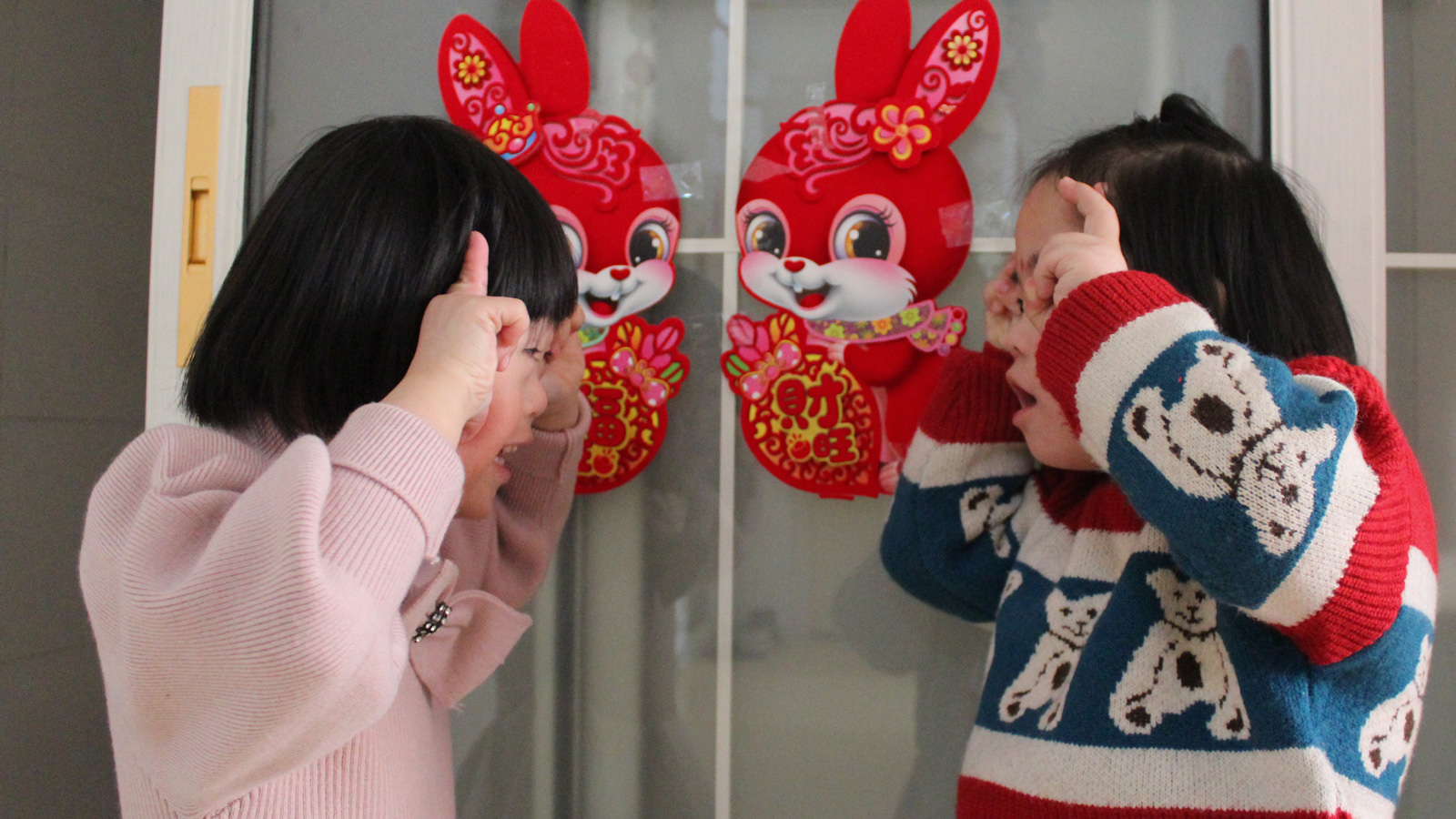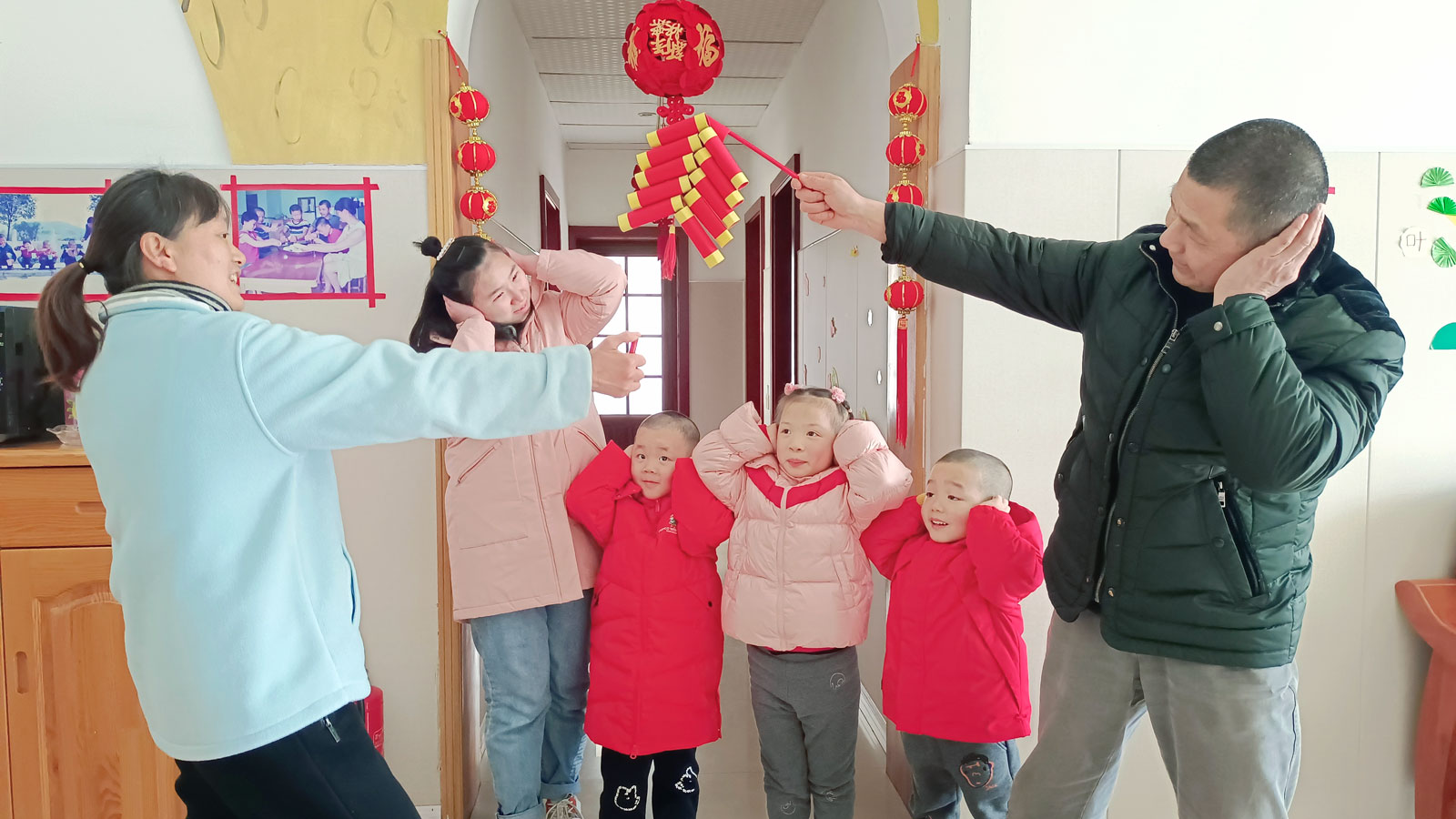Their Eyes Had Gone Dry-2
Nanny Du Xiurong watched from a doorway.
Something altogether new was happening in the orphanage where she worked. OneSky’s Wen Zhao was training new preschool teachers about how to relate to children and to each other, in the method known as Reggio Emilia.
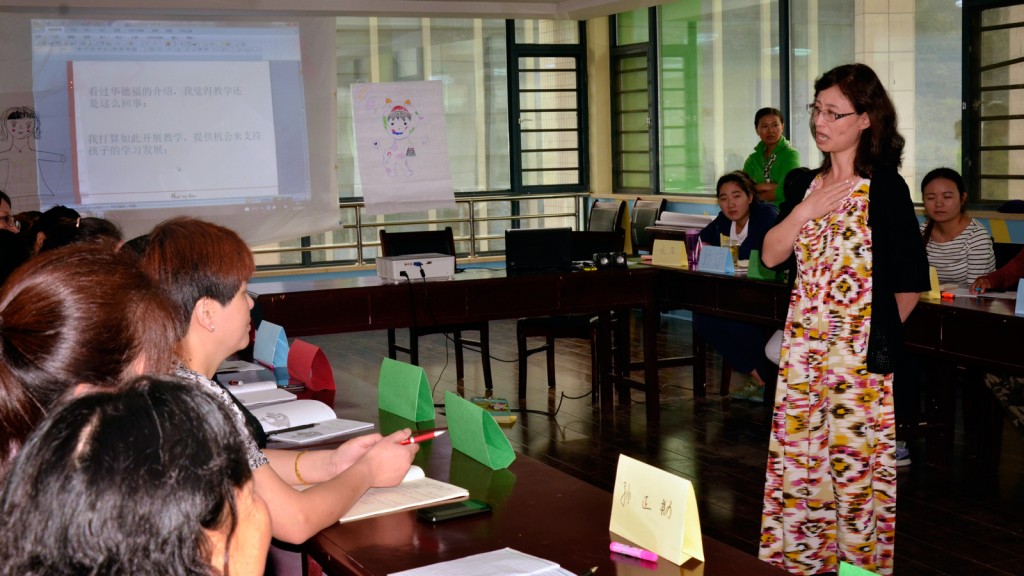
Wen, who is so enthusiastic that her words tumble out in a happy rush, was acting in a way Du had never seen a teacher act. In the classroom, in the midst of an explanation, Wen dropped to her knees beside a child.
“I see you looking at the flowers, Fuling,” she said, with a big smile, having noticed that the little boy had been staring at a vase on a table. “Do you like flowers?” The child nodded. Wen touched his shoulder and said, “Let’s look at the flowers together. What do you see? Which flower do you like best? What do you like about the flower?”
Smiling, looking in his eyes, Wen plucked his favorite from the vase. She knelt down at his level again, and offered it to him. Fuling reached out his hand, transfixed.
“What would you like to do with this flower?” Wen went on, “Draw a picture? Sing a little song about it?” Wen sang a few notes, laughing, making up a song as she went.
The little boy grinned and was quiet for a moment. “I want to draw,” he said.
“That’s a wonderful idea,” Wen said with great enthusiasm. She pulled out a little chair for him at the student work table, and handed him paper and crayons. Fuling picked up one crayon after another, and then settled on a bright red.
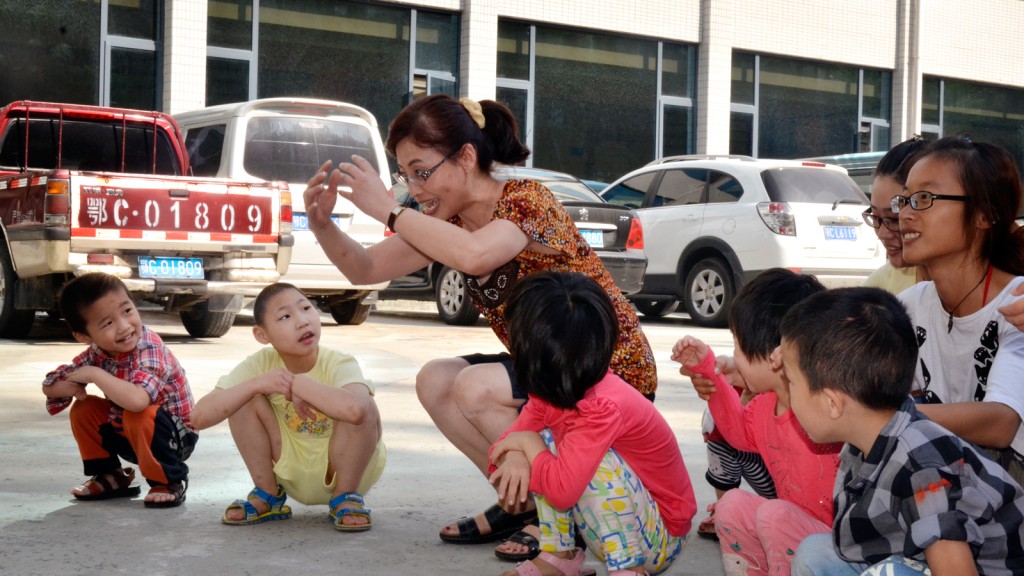
You must join children on their level, Wen explained to the group of young teachers. A teacher needs to trust the child’s instincts, and create a partnership with each child.
Time and again, Du noticed, Wen not only talked about how teachers should pay deep attention to children, she got down on the floor with the children to show what she meant. She didn’t tell the children what to do, but asked about their preferences and feelings.
By building this special relationship, Wen explained, teachers show children that they are valued and loved, that they are respected as members of a community. This is important for children everywhere, said Wen. But it’s especially important for children living without family in institutions.
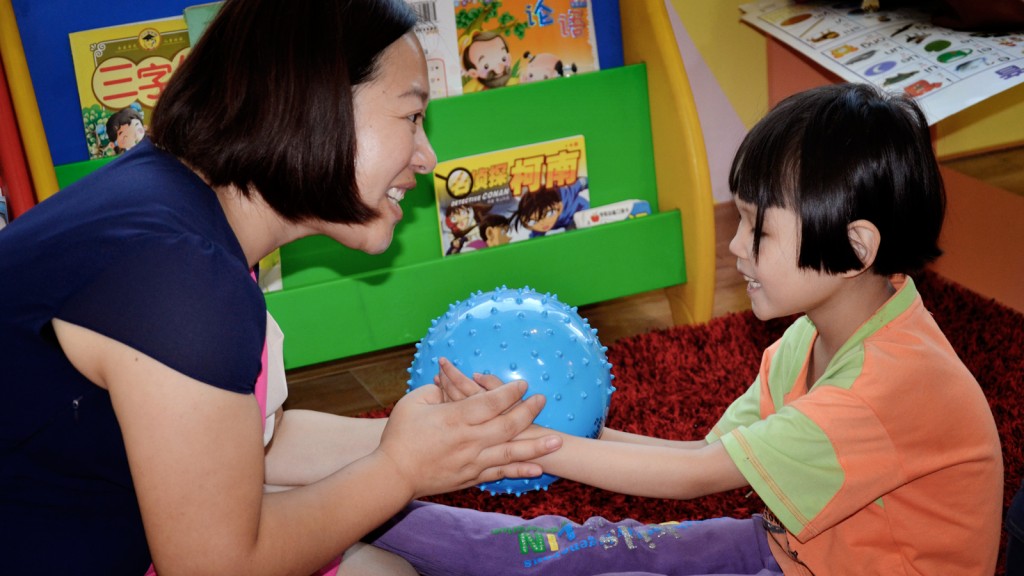
Du was especially touched as she watched Wen work with a little girl named Feifei, a child Du had cared for without much success. Feifei couldn’t sit up by herself, and cried most of the time. Now Wen knelt down beside her, talking gently, with a warm smile. She looked Feifei in the eyes, calling her by name, speaking in soft tones of encouragement and affection. As Du watched, Feifei seemed to turn into a different child, following Wen with her eyes, even venturing a smile.
During a break, Du went up to Wen and spilled out all her worries about the children she had cared for. They weren’t developing as she hoped they could. She couldn’t seem to reach them. “As a nanny in a welfare institution, I had tried my best to help the children,” she recalls. “But often I felt sad because I didn’t know how.
“Wen answered every worry,” Du remembers. “She said the children needed human touch, personal attention, more love. As I listened, tears ran down my face. It seemed so right and so simple, and yet I hadn’t known that.”
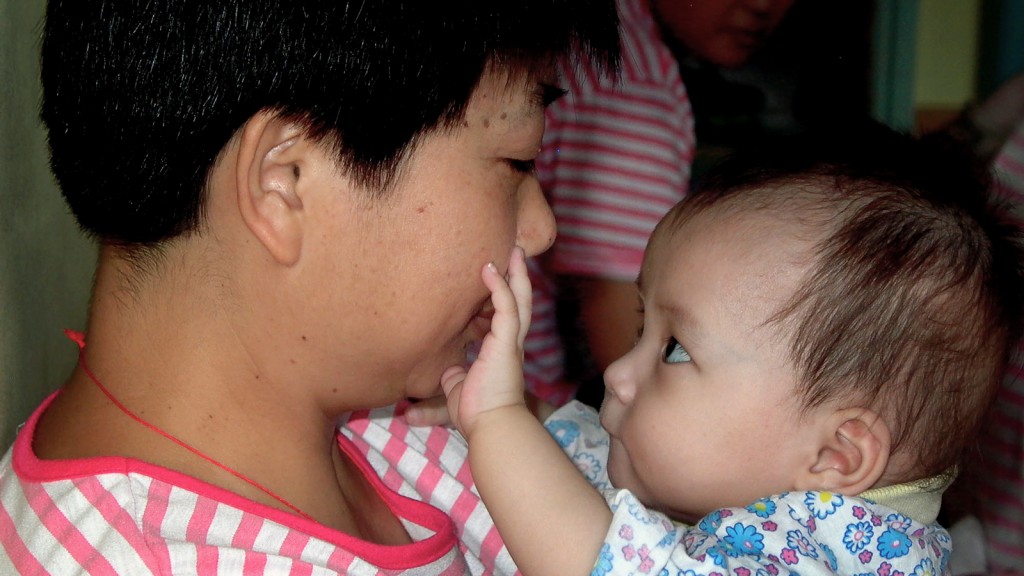
Wen explained that in the Reggio Emilia philosophy, children thrive and education blossoms in the context of relationships. Teachers form close ties with the children, helping them grow, helping them feel confident about their own abilities.
In this kind of teaching, Wen said, children can lead and teachers can follow. The teacher, too, is always a learner.
That day, says Du, changed her life.
“I knew I wanted to study more with her. I would become a teacher.”
